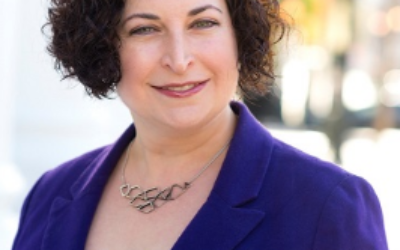World Affairs Council Examines Election Concerns
Local experts see problems ahead of the Nov. 3 election such as a lack of electricity, difficulty with signatures and absentee ballots.

Georgia State University’s World Affairs Council of Atlanta presented a discussion of “Elections in the Time of Covid” Oct. 6. The president of the Council, former U.S. Ambassador Charles Shapiro, asked three local experts to discuss some of the important issues they see developing in the month before the general election on Nov. 3.
The panelists were Dr. Amy Baxter, a medical researcher and CEO of Pain Care Labs; Neil Kinkopf, constitutional law authority and professor at Georgia State University College of Law; and Amy Steigerwalt, a professor in GSU’s Department of Political Science.
Here is some of the dialogue from the event.
Shapiro: What are some of your concerns about this election?

Steigerwalt: There are technical issues that are always of concern. I’m worried about making sure that they have enough power cords for the election machines. This was an issue last year and starting with the 2018 elections, that there were a couple of sites that didn’t get enough power. I’m also concerned about the people who are supposed to open up the election sites being there on time as well. These things happen a lot.
Then there’s the exact match issue. According to the law in Georgia, the ability to determine whether or not a voter’s signature matches their official signature is a power given to the county board of election. So the best thing I can say on that is that the signature on your driver’s license is your official signature.
Another issue will be ensuring that you have filled out the ballot correctly. Make sure you read it carefully. Make sure you are filling out the correct information in the place where you are supposed to. Remember your ballot must be received by 7 p.m. on election night. It doesn’t matter when it’s been postmarked, it must be received.
Shapiro: What is Georgia law about what is done when a presidential candidate dies between now and Election Day? Kinkopf: There’s a mechanism for the Georgia party affiliate, whether Republican or Democratic, depending on which one, to fill the vacancy. And it would depend on when the death occurs. If it occurs up to 10 days before the election, then the political party holds a convention and delegates of the executive committees of each county attend the convention and choose a replacement.
If the nominee dies in the last six days before the election, then what happens within the last 10 days before the election is that the state party executive committee simply designates somebody, but at that at that point you can’t change the ballot. What happens really varies from state to state as to how that gets treated. And so, if a presidential candidate were to be in that position of dying between now and the time of the election, it would just be legal chaos breaking out.
Shapiro: How is Secretary of State Brad Raffensberger doing in getting ready for this election?
Steigerwalt: So what’s interesting in the state of Georgia and why it makes it a little hard to answer that decision is that we have an incredibly decentralized system of handling elections. There are 159 different heads of elections in the state who have control over ballots, like sending out a ballot, verifying signatures. It is also the county election officials who are responsible for contacting those who have sent in absentee ballots and letting people know if they have an issue with their ballot and if there’s something that needs to be corrected on it.
Shapiro: It looks like both parties are preparing for court battles in states where there are close elections. How does it actually work?

Kinkopf: These battles will proceed in both federal and state court. Certainly, if Bush versus Gore in 2000 is any indication, there were battles in both federal and state court. In that case, I don’t think there was much advance preparation. But in this case, I think that the parties have some sense about where some of the problems are apt to arise. And so, they’re preparing their challenges. I think Bush versus Gore is going to end up looking like child’s play compared to this election because there are so many battleground states where the margins could end up being so close
Shapiro: As a doctor, what’s your advice about protecting yourself if you are voting in person?

Baxter: First of all, vote early because the lines on Election Day are going to be insane. You already should have gotten your flu shot because there’s data that just having a flu shot can actually protect against severe coronavirus. We’re not sure why. You’d want to get that two weeks in advance. Second thing is the week before, make sure your immune system is boosted as much as possible. So particularly with coronavirus, what has been found effective is exercise, vitamin D levels up to snuff, zinc, and melatonin, which is antiviral.
- Georgia Politics
- Georgia state university
- World Affair Council
- Charles Shapiro
- Dr. Amy Baxter
- Amy Steigerwalt
- Neil Kinkopf
- Bob Bahr
- News
- Local
- Georgia State University’s World Affairs Council of Atlanta
- Pain Care Labs
- Georgia State University College of Law
- Republican
- Democratic
- Secretary of State
- Brad Raffensberger
- Local News
- politics
- Political
- Election



comments